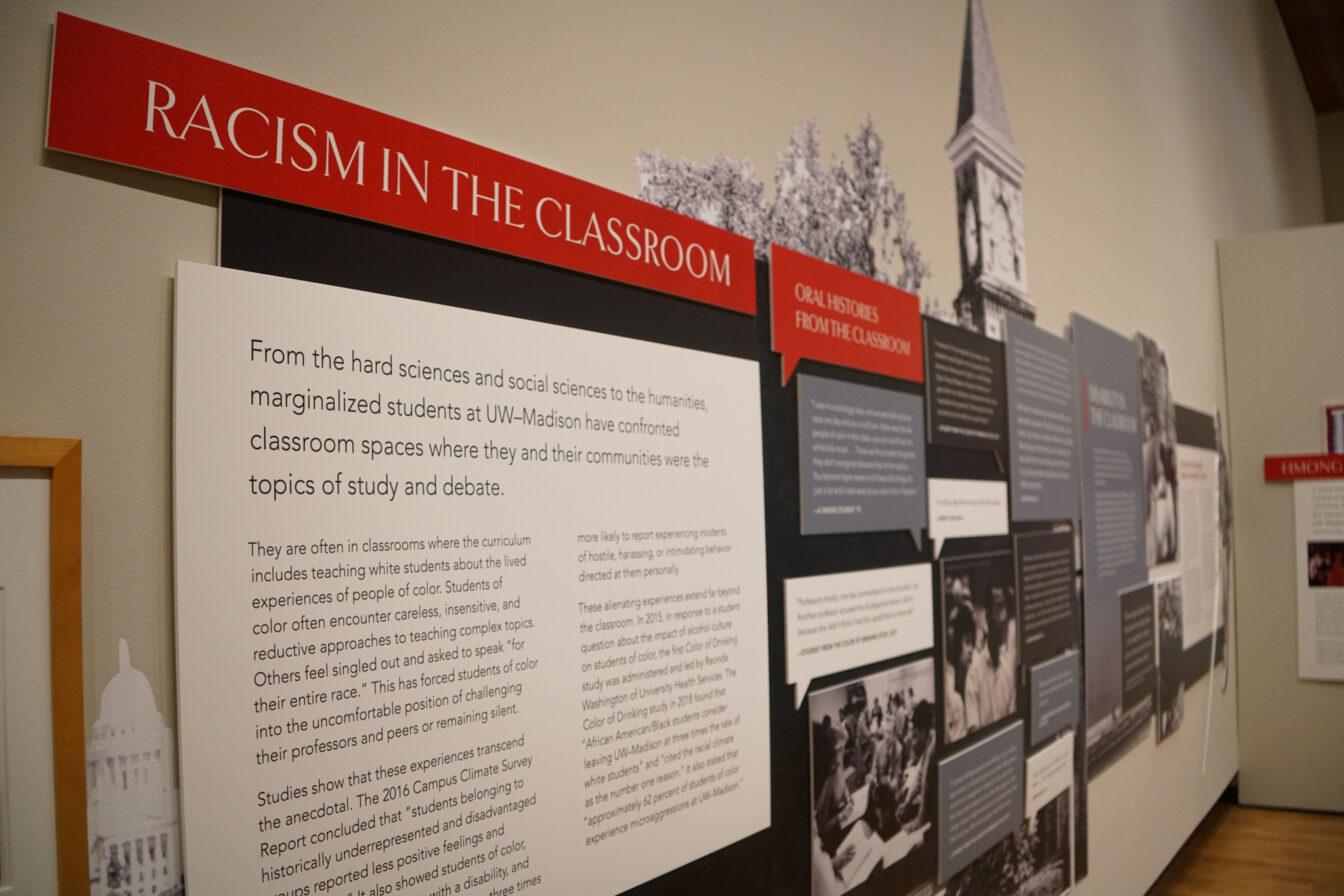University of Wisconsin Chancellor Jennifer Mnookin announced the Public History Project will be continuing its work through the Rebecca M. Blank Center for Campus History.
The center is scheduled to open in mid-summer, according to UW News.
The Public History Project was commissioned by former UW chancellor Rebecca Blank to research the history of UW, starting with two campus organizations which took on the name of the Ku Klux Klan in the 1920s, according to their website.
“It was really in that difficult moment of discovery where Chancellor Blank had the vision and I’ll say the courage to say we’re not going to turn away from that history, we’re going to try to understand that better and see how we can learn and grow,” Vice Provost of Teaching and Learning John Zumbrunnen said.
The Public History Project presented its findings from two years of research in an exhibition at the Chazen Museum of Art called “Sifting and Reckoning,” which ran from September-December 2022, according to the Public History Project website.
New Chazen exhibition highlights UW’s history of discrimination
Sifting and Reckoning highlighted racism and discrimination in housing, ceremonies and more faced by students of color and other marginalized communities. The exhibit had over 23,000 visitors, according to UW News.
“We had an unprecedented opportunity to look at a different history of UW-Madison and, a fuller history of UW-Madison,” Public History Project Director Kacie Lucchini Butcher said.
The Public History Project received positive feedback from the community on Sifting and Reckoning, including a desire for more stories to be told and a longer-term solution for the exhibition, Lucchini Butcher said.
Though the Sifting and Reckoning exhibition closed in December, Lucchini Butcher said there is more work to be done with community feedback and telling stories.
“You can only tell so many stories in a small space,” Lucchini Butcher said. “So one of the big things I think is that we want to do more research, we want to make more stories available. We want to create more curricular materials, do more public events. Just more is kind of the theme.”
Following the success of the Sifting and Reckoning exhibit, the Public History Project is planning the Rebecca M. Blank Center for Campus History, Lucchini Butcher said.
Students reflect on Chancellor Mnookin’s first semester at UW
The Public History Project is hosting listening sessions in Spring 2023, where the community will give feedback on what the next steps should be and what the CCH should bring to campus, Lucchini Butcher said.
“We want to do more curricular materials, make sure we’re not only in the classroom with students, but we’re also providing learning opportunities for faculty, staff, alumni, community members,” Lucchini Butcher said. “I really like to think of the center as being the epicenter of campus history. So we are here not only to serve as a resource, but also to lead projects and initiatives [and] to support other projects and initiatives that are related to campus history.”
Along with the CCH, some professors have begun including the lessons learned from the Public History Project in their curriculum, Zumbrunnen said. In his courses, Zumbrunnen said he uses information from campus history to highlight historical events, such as student protests around Vietnam and the Civil Rights Movement.
Zumbrunnen hopes the Public History Project’s research will further inspire undergraduate seminars and influence political science courses to consider the campus’s history while teaching.
“The Center for Campus History is providing new knowledge and new content that helps shape … workshops, trainings [and] orientations,” Zumbrunnen said. “So, I really think what this new center allows for is a kind of embedding of the work of understanding campus history in a variety of spaces across campus.”
While it is still uncertain where the CCH will be and how it will be run, Lucchini Butcher and Zumbrunnen are optimistic about what the center could bring to campus on a social and educational level.
Student input is a driving force in the development of the CCH and for further exploration of continuing Sifting and Reckoning, Lucchini Butcher said. The Public History Project is also open for students to help with research, both graduate and undergraduate, she said.
“We’re just happy to report that we’re going to be here [and] that we can continue to do the work,” Lucchini Butcher said. “But we would love to hear from students. We are always looking for research leads. We want students to participate and talk to us and tell us what issues matter to them.”
To contact the Public History Project with feedback, suggestions or questions, email [email protected].














